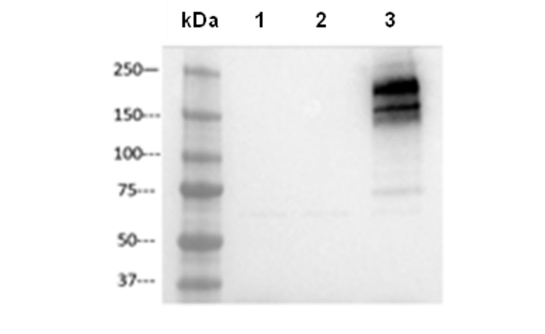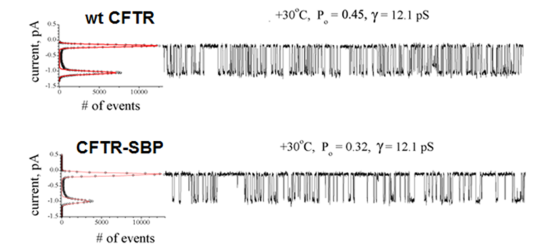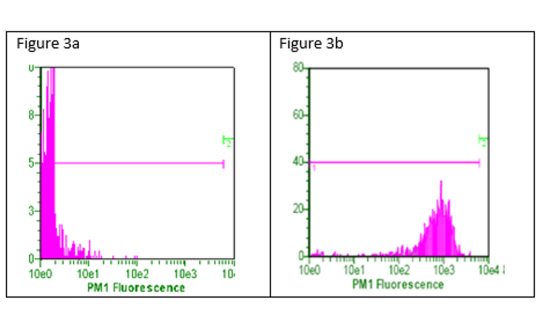CFTR HEK293 Recombinant Cell Line
The CFTR HEK293 Cell Line expresses full length, wild-type human cystic fibrosis transmembrane conductance regulator (CFTR) protein (Genbank #P13569, NP_000483.3), with a C-terminal Streptavidin-Binding Peptide (SBP) tag.
Expression must be induced ≥24 hours prior to an experiment using 1 µg/ml Doxycycline and 3 mM Na-butyrate. The inducible expression of CFTR was confirmed by Western blotting and flow cytometry.
Purchase of this cell line is for research purposes only; commercial use requires a separate license. View the full terms and conditions.
Materials Required for Cell Culture
| Name | Ordering Information |
| Thaw Medium 4 | BPS Bioscience #60181 |
| Growth Medium 4A | BPS Bioscience #79535 |
Materials Required for Induction of CFTR Protein Expression
| Name | Ordering Information |
| Growth Medium 4C | BPS Bioscience #79631 |
The cell line has been screened to confirm the absence of Mycoplasma species.
Cystic fibrosis transmembrane conductance regulator (CFTR) is a protein that in humans is encoded by the CFTR gene. CFTR is an ABC transporter-class ion channel that transports chloride and thiocyanate ions across epithelial cell membranes. Mutations of the CFTR gene affect functioning of the chloride ion channels in these cell membranes, leading to cystic fibrosis. It is characterized by the triad of chronic bronchopulmonary disease (associated with recurrent respiratory infections), pancreatic insufficiency, which leads to malabsorption and growth retardation, and elevated sweat electrolytes.
2. Hillier, L.W., et al. Nature 424:157-164 (2003).
3. McCann, C. M., et al. BioTechniques 38 (6):945–952 (2005).




